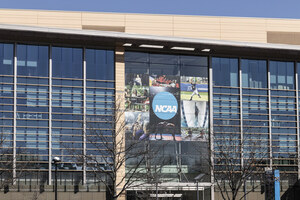 Reuters reported one year ago that unpaid coaches claimed the NCAA and more than 300 member schools in its Division I — the top tier for U.S. college athletics — unlawfully agreed to pay them nothing in a wage-fixing conspiracy. The plaintiffs include coaches for college baseball, tennis, indoor track, soccer and lacrosse, among other sports.
Reuters reported one year ago that unpaid coaches claimed the NCAA and more than 300 member schools in its Division I — the top tier for U.S. college athletics — unlawfully agreed to pay them nothing in a wage-fixing conspiracy. The plaintiffs include coaches for college baseball, tennis, indoor track, soccer and lacrosse, among other sports.The cases initially argued that the NCAA conspired with its member schools to fix the number of assistant coaches that Division I baseball teams might hire, which meant additional volunteer coaches received zero compensation. In July 2023, U.S. District Judge William Shubb in Sacramento held that the volunteer coaches' allegations of horizontal price-fixing "premised on the creation of the volunteer coach position," (which received no pay), "are sufficient to show antitrust injury." He wrote that "it is not implausible that plaintiffs would have been paid a salary above $0 but for the NCAA's adoption of the bylaw."
Volunteer Coach Antitrust Actions
Reuters reported that Judge Shubb’s ruling kept intact two related antitrust actions claiming that the NCAA violated federal and state antitrust law by scheming with member schools to illicitly fix the number of assistant coaches Division I teams might employ. Former volunteer assistant college baseball coaches Taylor Smart and Michael Hacker filed a complaint in late 2022 in the U.S. district court eastern district of California, Sacramento Division. It states that a volunteer coach “performs significant valuable work, and who would be paid for that work in a competitive market, but who cannot be paid for that work.”
The March 2023 complaint by volunteer coach Joseph Colon and other Division I volunteer coaches alleged the NCAA created a bylaw that amounted to illegal wage fixing. In a proper labor market, each school would openly compete for coaches and pay them the salaries that the market commanded. The plaintiffs allege that the NCAA created this bylaw “to fix the compensation of an entire category of college coaches at zero. Persons were hired as coaches by NCAA member institutions, but the schools were prohibited by an NCAA Rule, to which all member institutions agreed to abide, from paying them anything for their work. The NCAA's Division I rule was abandoned in January 2023 to allow teams to pay an additional coach, a move that eliminated the volunteer posts." However, “the past economic damage suffered by coaches who were required to work for no pay remains and the depression of salary levels, which was the purpose and effect of the Rule, is likely to continue”.
The NCAA attempted to dismiss both lawsuits, with their lawyers arguing that:
- Plaintiffs' claims are “conclusory and lacking any facts to show their teams would have hired them as a paid assistant.
- NCAA didn’t hold any power in a labor market for coaches.
- Competitive coaching positions exist at elite high schools and in professional sports
READ MORE CALIFORNIA UNPAID WAGES LEGAL NEWS
The case is Taylor Smart et al. v. National Collegiate Association, case number 2:22 – cv-02125, in the U.S. District Court for the Eastern District of California.
